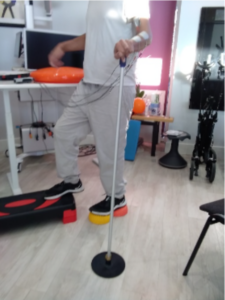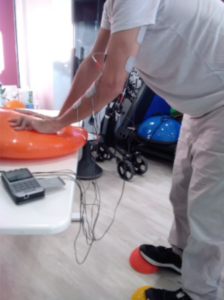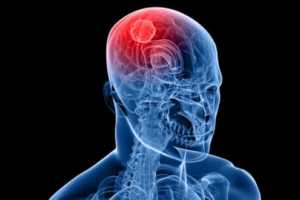Many individuals with cerebral palsy (CP) grow up attending physiotherapy, their focus is on building strength, flexibility, and balance. However, many adults with CP stop therapy, believing they have achieved all they can. In reality, continuing physiotherapy into adulthood offers many benefits, especially when dealing with new challenges like early aging, employment, and maintaining independence.
As adults with CP, we need to become aware of the compensatory movements that can cause pain, joint pain, muscle stiffness, and altered motor control problems can limit mobility and independence. Neuro Physiotherapy will enable you to realign your body and improve your abilities.
Adults with CP may experience chronic pain, stiffness, fatigue, and cardiovascular problems. Neuro Physiotherapy is key to improving mobility, managing discomfort, and reducing the risk of further complications, all of which enhance overall quality of life.
Employment
Employment is a common goal for adults with CP, but physical challenges may require workplace adjustments. Finding jobs that suit their skills and needs can be challenging. Physiotherapy helps by improving strength, coordination, and flexibility, making it easier to meet the demands of work. For those relying on disability benefits, maintaining physical health through therapy can reduce the need for costly medical care, promoting long-term independence and financial stability.
Social Life
CP also affects social relationships and participation. Limited mobility can make it harder to maintain friendships or romantic relationships, leading to feelings of isolation. Physiotherapy improves physical function, allowing individuals to participate more actively in social activities. While not all adults with CP will have children or jobs, therapy can ease the discomfort associated with these challenges, supporting greater independence and well-being.
Mental Health
Mental health is crucial as well. While CP is primarily a physical condition, some adults experience cognitive challenges, including memory loss or early-onset dementia. Physiotherapy, combined with mental stimulation, helps slow cognitive decline and manage emotional stress. Depression and anxiety are common, but regular physical activity and social interaction foster wellbeing both physical and mental.
Living with CP is a lifelong journey that does not end in adulthood. Physiotherapy remains essential in addressing the physical and mental challenges adults face, ensuring they continue to lead fulfilling, independent lives.
At Birkdale, we are proud to support our adult clients in reaching new goals, whether it is starting university, becoming parents, or simply maintaining a fulfilling social life. Every journey is unique, and we are here to support you at every step of the way.
If you’re an adult with CP, remember, it’s never too late to return to physiotherapy. Whether you are managing pain, motor control issues, or staying active, regular therapy can keep you strong as you age. At Birkdale, we offer thorough assessments and personalized sessions. Do not hesitate to reach out with any questions.

This is “D”, a 37-years-old man with Spastic Hemiplegia CP having a physiotherapy session at
Birkdale.




